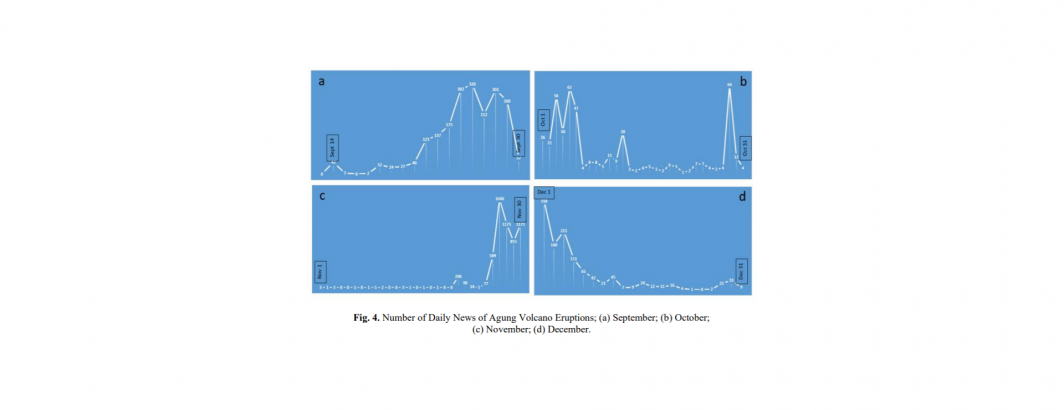
A new article uses GDELT to examine the relationship between news coverage and tourism:
Bali Island, well known as The Island of The Gods, is a top tourist destination. In 2017, Agung Volcano eruption causes lots of tourist canceled their visits to Bali due to excessive news about the danger to travel to Bali. This was the first research conducted to analyses impact of volcanic disaster to tourist visits using big data in Bali, Indonesia. This research uses big global database or big data to analyses the impact of web news to tourist visits to Bali due to Agung volcano eruption. Big data is a term that describes the large volume of data, both spatial and non-spatial that inundates the world on a day-today basis. Big data in this research were processed from The Global Database of Events, Language, and Tone (GDELT) Project. GDELT project monitors the world's broadcast, print, and web news from nearly every corner of every country creating a free open platform for computing on the entire world. The purpose of this research is to analyses the impact of Agung Volcano eruption to tourist visits to Bali in 2017. Every news data sets from every country, filtered, calculated and spatially analyzed to discover the timeline and impact of Agung Volcano eruption on tourist visits to Bali in 2017. Geographic Information Systems (GIS) were used for calculation and spatial analysis. The result shows that the number of tourist visits were declining in October and November 2017 but raised again in December. November has the highest number of news related to the eruption. After the eruption in December, the number of tourist visits start to rising due to the operational of the airport. The declining caused by shutdown of Bali airport and travel warning policy from foreign country for their citizen to not to travel to Bali. Even though the number of tourists is declining in October and November, number of tourists visit on the same period in 2017 were higher than 2016.